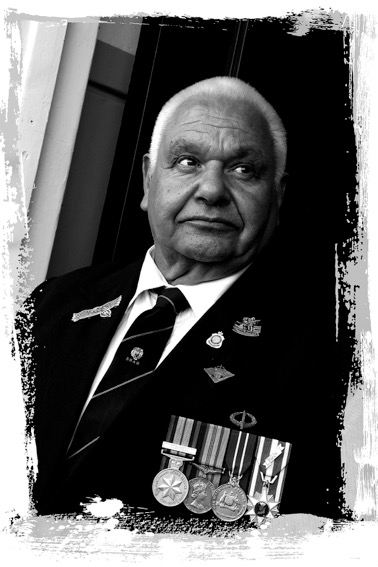Frank Clarke
Wemba Wemba, Jardwadjali and Gunditjmara Man
Retired Private
5th Battalion, Royal Australian Regiment
Royal Australian Infantry Corps
Australian Army
Vietnam Veteran
Medals and Awards
Australian Active Service Medal 1945-75 – Vietnam
Vietnam Medal
Australian Defence Medal
Republic of Vietnam Campaign Medal
Returned from Active Service Badge
Infantry Combat Badge
I was born in 1946 in Bordertown in South Australia, not far from my mother’s people, the Wemba Wemba, Jardwadjali and Gunditjmara people, while my Dad’s people are just over the border in Western Victoria. After I left school, I thought about joining the Army because I didn’t want to work shearing sheep and labouring like Dad. So in January 1964, when I was 17, I applied to enlist and passed all my tests and medicals. After recruit training I was posted as an infantryman to 2nd Battalion Royal Australian Regiment (RAR).
In 1966, I returned from Christmas leave and was transferred to Sydney to the 5th Battalion RAR, which was preparing to go to Vietnam. We did our jungle warfare training up at Canungra and Wiangaree Forest and then we were off to Vietnam as part of the new Australian Task Force along with 6th Battalion RAR.
We landed in May 1966, and our first job was to set up our military base at Nui Dat in Phuoc Tuy province. The Viet Cong were in control of most of the province when we arrived. They were taxing the villagers, and if they met resistance, they’d execute the Headman and kill his family. For the whole year we were there we worked hard 7 days a week, slushing across creeks, through jungle, soaked by sweat and drenched by monsoons, patrolling constantly to engage the VC and win back the province. At various times I was a rifleman, forward scout, section commander, and platoon radio operator. We were on alert 24 hours a day, adrenaline surging, never out of danger. When one battalion was out on operation, the other would be in support, and then we’d change around. We supported 6 RAR at the battle of Long Tan. During our tour, we lost 25 men, including Private Noack, who was the first National Serviceman to be killed in Vietnam. But by the time we returned to Australia in May 1967, we’d restored over 90% of Phuoc Tuy province to Government control and won the friendship of the local people.
I left the Army in 1970. I thought I was OK after Vietnam, but right from the time I got home, I found myself getting angry all the time. I’d yell at the kids, at my wife. I didn’t know what was happening to me, but when my second wife left, I finally went to Vietnam Veterans Counselling. Here I received help, and where I found out that I had Post Traumatic Stress Disorder. At that time, I was working for the Education Department, and I began to talk about Vietnam to my Year 12 students as part of their Social Studies, and I found that helped a lot, too.
Despite the horrific things I experienced in Vietnam, I’d do it all again with those blokes I served with. I never experienced any racial prejudice in the Army. If anyone got into trouble, so did the rest, we were all in it together. It didn’t matter what colour you were, in the Army you all wore green. I treat everyone as an equal, and I expect to be treated the same way back, and that was ingrained in me from the Army.
